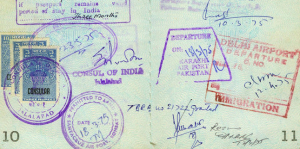On Friday January 17, 2014, President Obama announced reforms to the NSA’s surveillance program. In the speech made at the US Department of Justice, the President acknowledged the government “must maintain the trust of the American people,” but, in the US, there is great divide as to what constitutes the best policy. Conservatives tend to lean heavily toward robust intelligence gathering as a means to defend the nation and world from terrorist attacks while Liberals favour less surveillance and more personal liberties.
Obama’s speech referenced the quandary. The President took aim at nations who privately rely on the US to provide security information but who publicly decry NSA policies. Specifically, Obama cited Russia and its invasive intelligence gathering of the private sector and China for its well-guarded and aggressive surveillance practices. The President remained firm that his revisions would not compromise the country’s security.
Central Reforms
President Obama reforms will affect international and national surveillance programs. He declared several immediate changes.
Court Orders for Phone Surveillance – In a major policy change, Obama changed the procedure for phone surveillance inside the US. A court order will now be required if the NSA wants to query inside its database of phone records.
NSA analysts will only be permitted to analyse calls that are two steps removed from a queried number rather than the three steps removed reviewed structure that currently exists.
The NSA database only holds contact phone numbers, length of calls and times but not content of calls.
Obama acknowledged that other options under consideration have been to move the database to an independent third party but the President backed off this reform at the present time. Obama has ordered Attorney General Eric Holder to present a plan to transition the bulk data away from the government’s possession. The plan is to be delivered to the President by March 28, 2014, when existing authorities expire and become subject to renewal by the Foreign Intelligence Surveillance Court (FISC).
Cessation of Eavesdropping on Foreign Leaders – The President said that communications of heads of state of “close friends and allies” will not be monitored unless the nation’s security is at risk. He said that if he has questions, he will pick up the telephone and ask questions directly. However, he pointedly criticised governments who eavesdrop on the US and then criticise US policy.
Call On Congress – Obama called for Congress to establish a panel of public advocates to present privacy concerns to the FISC, the body that entertains government applications for secret surveillance. The President also directed Attorney General Holder to change the use of national security letters that act as subpoenas to obtain business records. This will end the indefinite gag order that accompanies these letters. The President stopped short of requiring judicial approval for the letters.
E-mail and Phone Surveillance of Foreign Targets – Revisions to this program represent a particularly bitter pill for conservatives who believe this NSA program critical to national security. The program monitors e-mails and phone conversations between foreign targets and US citizens. In essence, the President instructed subordinates to develop new protections for information pertaining to US citizens.
The reforms mark the first revisions to an aggressive NSA surveillance program that has advanced substantially since the terrorist attacks of September 11, 2001. As expected political fireworks has followed as representatives of all sides hit the airwaves n Sunday. The program is sensitive and Obama acknowledged that it has been successful. The question is where to draw the practical line between invasion of personal rights and home security. In the past, the US has favoured national security. Finding the right balance is no easy responsibility.
What are your thoughts on this whole NSA debacle?
Image Credits: Igor Stevanovic/BigStock.com







